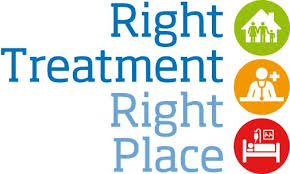 Everyone in healthcare knows that something’s got to give. it’s not a matter of “if” but “when” – and to some extent, how?
Everyone in healthcare knows that something’s got to give. it’s not a matter of “if” but “when” – and to some extent, how?
 Everyone in healthcare knows that something’s got to give. it’s not a matter of “if” but “when” – and to some extent, how? In the arena of change, two major payment players, ACOs and Bundled Payments, are fighting to become the savior of American healthcare. Chances are you’ve already heard plenty about the former; accountable care is the hot topic of the year. Not only has it made headlines, but it’s been the topic of industry wide webinars and education.
Everyone in healthcare knows that something’s got to give. it’s not a matter of “if” but “when” – and to some extent, how? In the arena of change, two major payment players, ACOs and Bundled Payments, are fighting to become the savior of American healthcare. Chances are you’ve already heard plenty about the former; accountable care is the hot topic of the year. Not only has it made headlines, but it’s been the topic of industry wide webinars and education.
Bundled Payments, however, are lurking just below the surface when it comes to healthcare hubub. If you need a refresher, here’s a quick run down of each.
ACOs
Primary care doctors join an accountable care organization and the ACO carries the weight of the health of the patient population. Medicare is still paying providers how they normally would – by comparing the treatment to what they define as being the average for treating a patient in a similar medical situation. If providers are able to treat the patient and actually require less than the target payment, the ACO will get bonuses. In this sense they are similar to Medicare Advantage plans, except patients don’t enroll in an ACO the way they would an MA plan.
Bundled Payments
The idea behind Bundled Payments is that instead of focusing on population health, cost savings can be achieved by focusing on the reduction of hospital services. One way they are lobbying for this is through changing laws surrounding cost sharing between physicians -and, unlike ACOs, factors specialists into the equation alongside primary care providers. In this case, the cost savings is shared amongst physicians and the hospital, but not necessarily with Medicare. The “bundled payment” piece comes in because CMS will give a set amount to the organization, which is then divvied up amongst all the providers as payment – they do not receive additional payments from CMS.
Some key differences between the two are outlined in the table below.
| Bundled Payments | ACOs |
| Specific patients | Every patient |
| Budget determined by hospital | Budget determined by CMS |
| Specific conditions | All conditions |
| Includes specialists | Focused on PCPs |
| Organization keeps all savings | Savings shared with Medicare |
| Payment from contracted org. | Payments from Medicare |
| Less money involved (pilot project) | More money involved |
Bundled payments allow physicians to have monetary rewards directly placed into their hands when they achieve a major cost savings initiative, such as reducing costs of tools or technology. Of course, that being said, there’s a lot less being risked in bundled payments, so, therefore, there’s less to lose than in ACOs. ACOs involve more gain and, on the flip side, more risk – and the overall success is not going to be truly known until several years have passed and CMS can look at the data longitudinally. Some organizations can take the risk of ACOs, while others that are thinking along more conservative lines may benefit from taking the Bundled Payment approach.
The patients being dealt with in each case are vastly different too. ACOs are trying to capture an entire population and manage their health on a much broader scale than Bundled Payments, which have a hospital-centered approach. While in the long run, improving population health is certainly likely for sustainable cost savings, those who need short term fixes may find that focusing first on hospital based projects will help them “ease in” to accountable care later on down the road.
One should consider, however, that the benefit of ACO’s focus on population health is that special attention is paid to patients with chronic conditions – patients that make up at least half of all health care costs; numbers that will only increase in the next decade as our population continues to age. In properly addressing the health needs of this patient demographic, incredible savings could be achieved. But, it’s not a quick and easy fix.
Many criticize ACOs for being too similar to the Managed Care flops of the 1990s. It’s not that the design needs to change, it’s that the attitudes must. ACOs are not focused on the financial desires of the hospital, and Bundled Payments are. Physicians who are in primary care don’t typically have especially close-knit relationships with hospitals to begin with, and thus, they are more dubious than specialists when it comes to taking the plunge into an ACO. Not only are they worried about the financial risk, but the risk to their patients – with whom they have likely built up a trusted rapport. While Bundld Payments will appeal to specialists who are already working closely with the hospital, for precisely the same reason PCPs may be hesitant about ACOs, they may feel like the odd man out in Bundled Payment plans.
Where everyone is concerned, ACOs are the larger risk but also have the largest and longest lasting payoff if they are successful. Bundled Payments may be a great way for more conservative organizations to stretch their legs and “test the waters of healthcare reform” without putting too much on the line. Bundled Payments also have the potential to strengthen and nurture relationships between physicians, hospitals and patients that could prep them for the leap into an ACO in the future.







